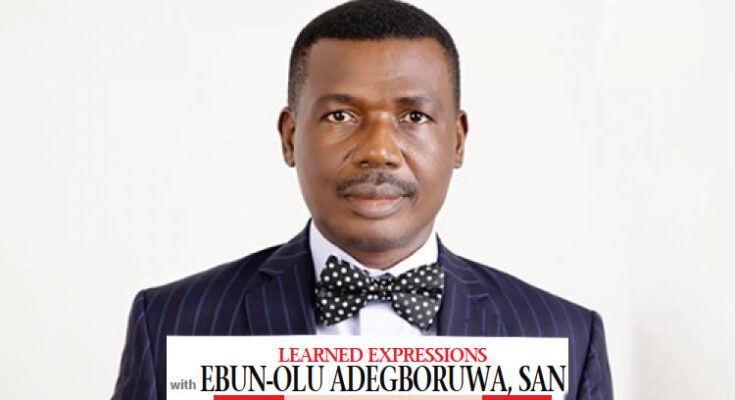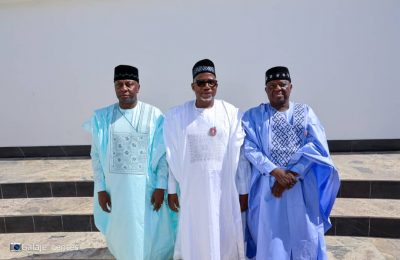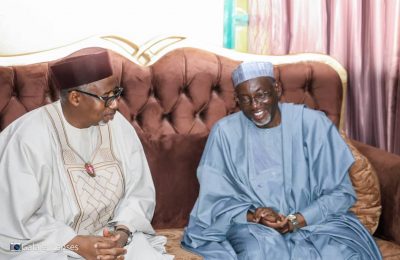
In a democratic setting, the only form of leadership change acceptable worldwide is through the ballot, whereby aspiring contestants submit themselves to the will of the people. Nigeria as a nation has gone through so many experiences in the course of change of leadership. Without any doubt, we have not had the best of times midwifing this process, given the desperation and manuevrings accompanying the system. In the words of the Electoral Act, 2022, “election” means ‘any election held under this Act and includes a referendum’ whilst “general election” means ‘an election held in the Federation at large which may be at all levels, and at regular intervals to select officers to serve after the expiration of the full terms of their predecessors’. According to Merriam-Webster online dictionary, election is the right, power, or privilege of making a choice and when this is extended to politics, it then means the process of choosing leaders to occupy political offices. Depending on the situation, elections are supposed to be a transparent, effective and credible method of raising leaders by the people. It should be devoid of drama, violence or any form of manipulation.
One of the reasons why it is important that the will of the people be made known through an election is so as to hold the leaders accountable to the people that elected them. So, if we have free, fair and credible elections, then it becomes so easy to hold leaders to the promises made during the campaigns knowing well that non-performance or breach of these promises will be roundly met with rejection through the ballot. This is why we agitate for free and fair elections because that is the best way to guarantee performance by our leaders. In Nigeria presently, the process of choosing leaders is very complicated, starting from the rancorous primaries to the main elections, all tension soaked and reeking of violence and mind-bending manipulations. There is no transparent means of guaranteeing that the outcome of the various elections will produce the true choice of the people, which is why there are so many election-related cases in court. The chairman of the Independent National Electoral Commission, INEC lamented that there are not less than six hundred cases pending in various courts on pre-election disputes, whilst the Honourable Chief Judge of the Federal High Court said that the cases are well over one thousand.

The Electoral Act, 2022 is commendable in its own ways given the challenges faced with the Electoral Act 2010 with its manifest limitations and shortfalls. However, the new Act is not without its own shortcomings, especially in the area of resolution of electoral disputes. It used to be the case that litigants could approach any court for the ventilation of their grievances with the exclusive jurisdiction granted to Election Petitions Tribunals to deal with all disputes arising from the conduct of elections. Whatever may be the motive of the legislators, they should not make laws to target individuals. In most cases, the legislators in the National Assembly are always at loggerheads with the governors of their respective States to their ultimate disadvantage. This is why in the present dispensation, almost half of the legislators are not returning to the National Assembly, no thanks to the governors who are akin to emperors. As a way of whittling down the powers and perceived influence of the governors on the judiciary in the States, the legislators inserted a clause in the Electoral Act, 2022 denying the High Court of the States jurisdiction to entertain pre-election cases. Section 84 (14) of the Act provides thus:
“Notwithstanding the provisions of this Act or rules of a political party, an aspirant who complains that any of the provisions of this Act and the guidelines of a political party have not been complied with in the selection or nomination of a candidate of a political party for election, may apply to the Federal High Court for redress.”
The above provision effectively ousts the jurisdiction of the State High Courts from adjudicating upon pre-election cases, in favour of the Federal High Court, exclusively. Let me share my recent experience in court with you in order to appreciate some of the problems caused by the above provision of the Electoral Act and how elections have become burdensome to us all. I had a matter before the Federal High Court in Lagos, involving a commercial dispute that dictates some urgency, in that ex-parte orders were granted by the Court and there was need for an urgent determination of certain issues as many people were being affected. The case was to come up on November 8, 2022 for hearing until we got a notice from the Court to the effect that the Honourable Chief Judge of the Federal High Court had constituted a special task force of certain judges to hear and dispose of certain pre-election disputes, within one month. They were to set aside all other assignments arising in other cases pending before them for a whole month. What led to this? A certain political party had conducted its primary elections and was said to have forwarded the list of all its candidates in the State for the 2023 general elections to INEC, until a new presidential aspirant emerged on the scene who was said to have produced a fresh list of candidates that displaced the existing list. In the end, all the previous candidates filed separate suits in court numbering close to one sixty-five different cases. There were also other areas of disputes in the other political parties.
On November 8 when my case was scheduled to come up before the Court, I attended the Court session with my clients. The Court sat no doubt, but my case and indeed all other cases were not listed for the day. The judge sat early enough but the politicians and their lawyers that filed the pre-election cases which aborted our own and other important cases were nowhere to be found so the judge had to rise. The judge could not attend to our case due to the pending memo from the Honourable Chief Judge directing him to attend to only pre-election cases and our hearing was aborted that day. The recklessness of politicians, the impunity of leaders and their inability to follow their own constitution and rules of engagement led to the disruption of the schedule of the judiciary. This same scenario will play itself out next year, when over four hundred judges will abandon their regular court schedules to attend to various election petitions arising mostly from the fraud, manipulation and misconduct of politicians. When you have countless number of pre-election cases and numerous election petitions to be adjudicated upon, they are clear indications of the burden of elections, when those entrusted with political power refuse to play by their own rules. And we all carry the burden, in one form or the other. But they can and should be avoided.
In the appellate courts, that is the Court of Appeal and the Supreme Court, it is easier for the carmel to pass through the needle than to secure a hearing date for pending appeals. It is said that the appellate courts have become burial grounds for litigation in Nigeria. Once your matter goes on appeal, you just go and relax or gather the parties and their counsel together to agree to resolve their dispute amicably. This is affecting investments, it is affecting our national life in many ways than we can imagine and it is wreaking great havoc on our common existence. We all say it openly that the court is the last hope of the common man because he has no one else to turn to whenever he suffers oppression and injustice from the high and mighty. In these very difficult times when life has become brutish and short, when the average person is finding it difficult to survive, the areas of worry for him should not include denial of access to justice, in any form whatsoever. An employee whose job has been unfairly terminated without payment of his benefits should not have his case languishing in court for years, a wife who has been beaten, bruised and battered and thrown out of her matrimonial home should not have to endure endless adjournments for her to secure justice and it should not be the case that a helpless widow who is being deprived of the benefits of the estate of her deceased spouse should remain in court till she dies.
ALSO READ FROM NIGERIAN TRIBUNE
The other aspect of incongruity of section 84(14) of the Electoral Act conferring exclusive jurisdiction on the Federal High Court in pre-election matters is that it constitutes a total disregard for the concept of federalism. Why should a court set up by and for the federal government be the one to determine disputes arising from primary elections conducted in Rivers, Kano or Lagos States, for the purpose of choosing candidates into the House of Assembly of those States. Why should disputes relating to the governorship election of Taraba State be the business of the Federal High Court? The National Assembly is dominated by members of the ruling All Progressives Congress which promised the people of Nigeria restructuring, true federalism and devolution of powers before the 2015 elections. How can that same political party, in 2022, enact a law that speaks against federalism in favour of a unitary system of government? It is an avoidable drawback. If the judges of the States are said to be under the control of their governors, is there no room for appeals against any judgment or decision that may be perceived to be wrong?
The Honourable Chief Judge of the Federal High Court made an open statement recently that judges were not consulted by the National Assembly prior to the enactment of the Electoral Act which has now led to the unmanageable congestion of the dockets of that court, to the detriment of all other cases. To enact such an important law without consulting major stakeholders is a great disservice to nationhood by our legislators, with due respect. Maybe it was an oversight but now that the reality of that error is staring us in our faces to the point of blindness, it should be corrected urgently. In this regard, it is suggested that pre-election disputes should fall within the jurisdiction of the court that is closest to the venue of the election. There is nothing in the Constitution or the Electoral Act or indeed the constitution and guidelines of the political parties that judges of the State High Courts cannot interprete or decide upon. Afterall, these same judges form the nucleus of the Election Petition Tribunals that would adjudicate upon the main election in 2023. So how come they are disqualified from deciding pre-election disputes when they are the ones to resolve the disputes from the main election? We should not allow the conduct of elections and the resolution of the disputes arising therefrom constitute any burden to our people.







